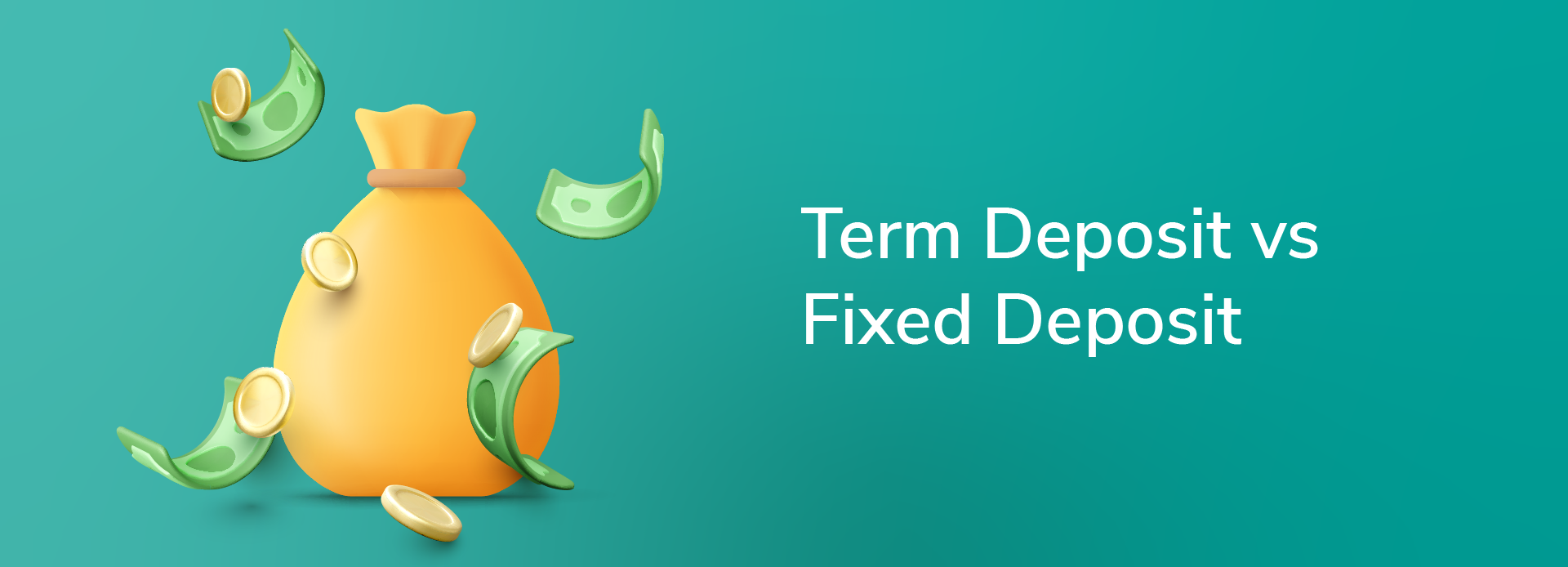
Term Deposit Vs Fixed Deposit
15 May 2024 | By INDIE
The prospect of Investing your hard-earned money in Fixed Deposits (FDs) is attractive to many for various reasons. FDs offer a secure avenue to park surplus funds, providing a guaranteed return on investment without subjecting the principal amount to market volatility. This stability makes FDs an attractive option for individuals who prioritise capital preservation over high-risk, high-reward ventures. Moreover, FDs also boast higher interest rates compared to regular savings accounts.
However, should you invest in a term deposit vs. fixed deposit to get these benefits? These two terms are often tossed around interchangeably, leaving many puzzled about their distinctions. While they might sound similar, they serve distinct purposes in the world of investments. In this blog post, we will help you answer the question, are term deposit and fixed deposit the same?
What is a Term Deposit?
A term deposit is a financial product banks and financial institutions offer. It allows people to invest a specific amount of money for a fixed period. During this period, the deposited amount accrues interest at a predetermined rate. You can choose various durations for term deposits, ranging from a few months to several years, according to your preferences and goals.
The distinguishing feature of a term deposit is its fixed maturity date, which means that the deposited amount remains locked in until the end of the term. This characteristic makes them ideal for individuals who want to set aside funds for a specific purpose or time frame, such as saving for a future expense or earning higher interest on idle cash reserves.
The term deposit vs. fixed deposit comparison simply arises from the fact that there are two types of term deposits - recurring deposits and fixed deposits. Let’s cover them in detail to help you understand the correlation.
Recommended Read: What are Tax-Saving FDs?
More About a Recurring Deposit
In an RD, you can invest a fixed sum at regular intervals, typically monthly. It operates on a similar principle to an FD, with the key difference being the periodicity of investments. Essentially, an RD can be likened to opening multiple FDs, each with the same maturity period.
Once you set the amount and tenure of the RD, they remain fixed throughout the investment duration. Unlike FDs, where the entire sum is deposited upfront, RDs allow investors to gradually accumulate funds over time, making it a convenient savings option for those with regular income streams.
Premature withdrawal from an RD is possible but with penalties in the form of reduced interest rates. The minimum investment amount for an RD may vary from one bank to another, typically starting from Rs. 1,000.
Now, let’s look at the other side of the term deposit vs. fixed deposit comparison.
More About a Fixed Deposit
FDs represent a classic investment option where you choose to invest a specific sum of money for a predetermined period. Unlike RDs, FDs offer flexibility in terms of tenure, ranging from short-term commitments of a few days to longer-term investments extending up to 10 years or more. The duration you select to lock-in funds determines the interest rates associated with FDs (along with other factors like the invested amount), with longer tenures typically yielding higher returns.
Term Deposit vs. FD: Comparison At a Glance
● Term deposits involve locking in a fixed sum for a set period, while FDs offer flexibility with durations ranging from a few days to five years or more.
● Both term deposits and FDs have limited accessibility until maturity and incur penalties for early withdrawal.
● Minimum investment amounts differ, typically starting at Rs. 1,000 for term deposits and Rs. 5,000 for FDs.
● Term deposits tend to offer shorter investment tenures compared to the flexible options provided by FDs.
Not sure which way to go to park your hard-earned money? Start with INDIE Fixed Deposits today!
Disclaimer: The information provided in this article is generic and for informational purposes only. It is not a substitute for specific advice in your circumstances. Hence, you are advised to consult your financial advisor before making any financial decision. IndusInd Bank Limited (IBL) does not influence the views of the author in any way. IBL and the author shall not be responsible for any direct/indirect loss or liability incurred by the reader for making any financial decisions based on the contents and information.





